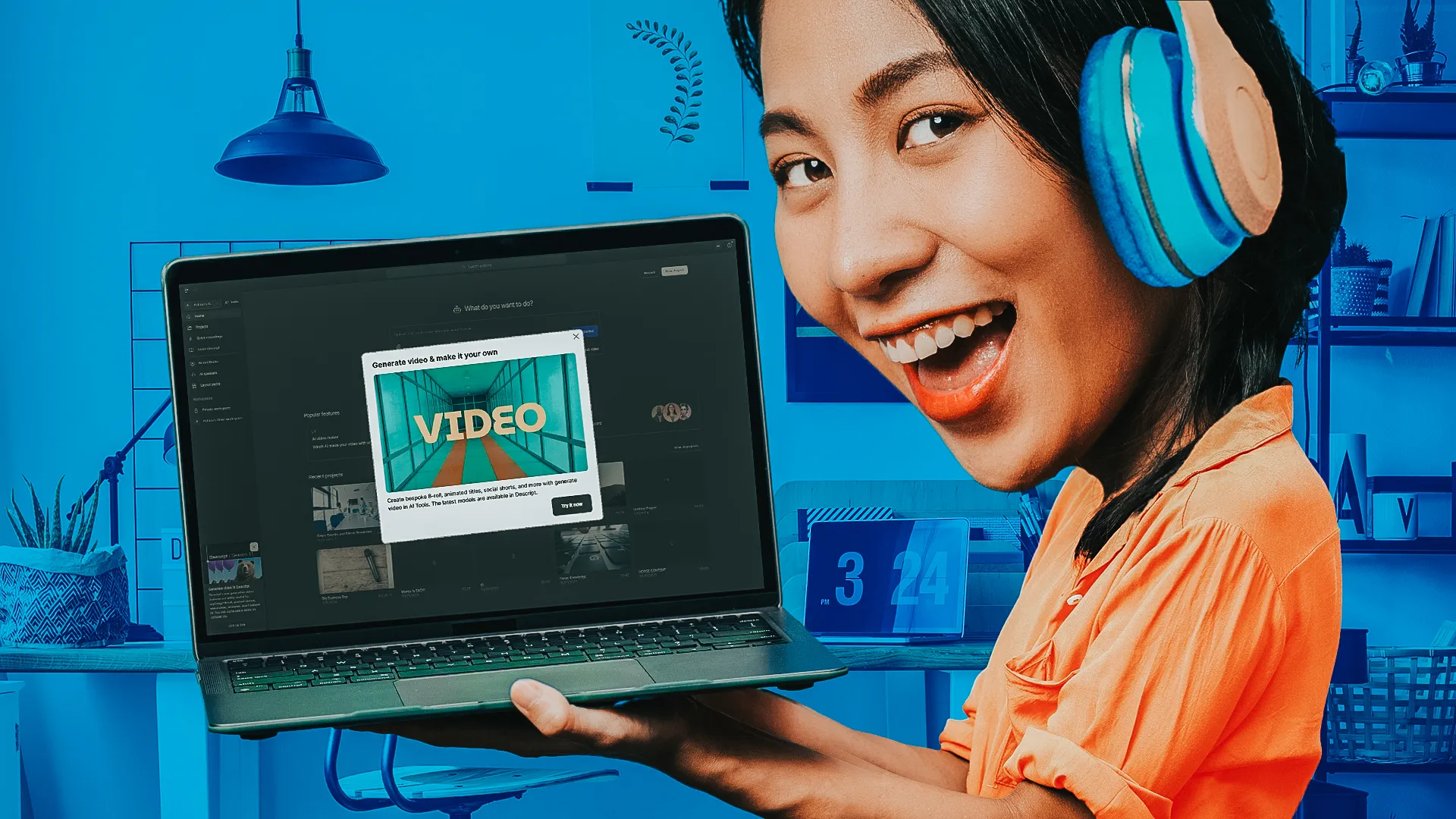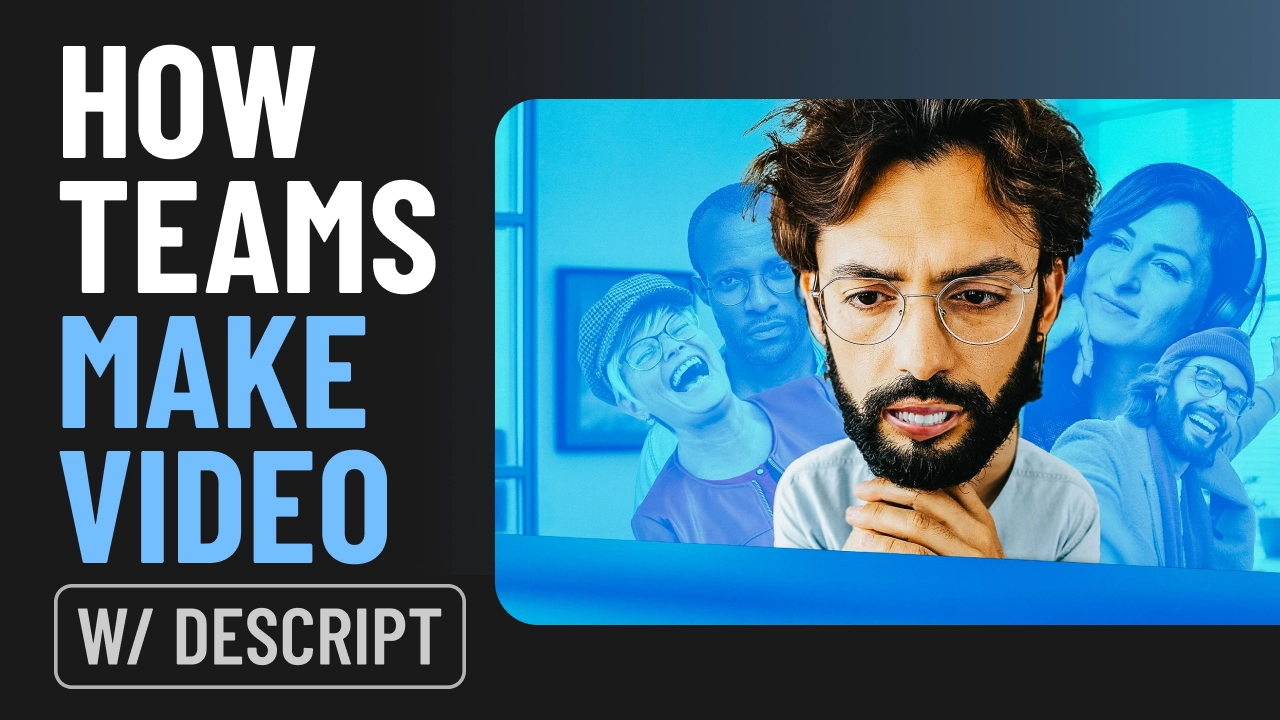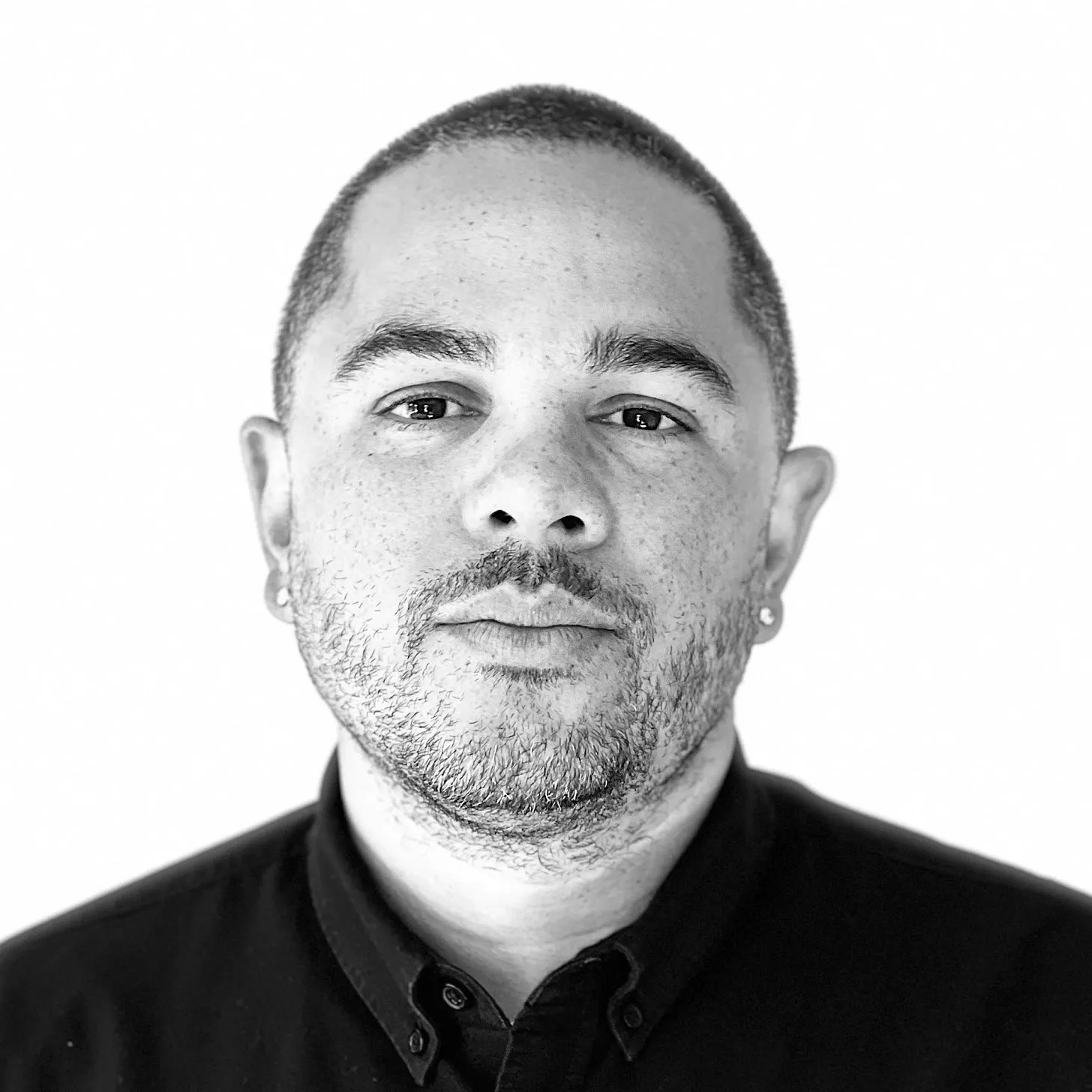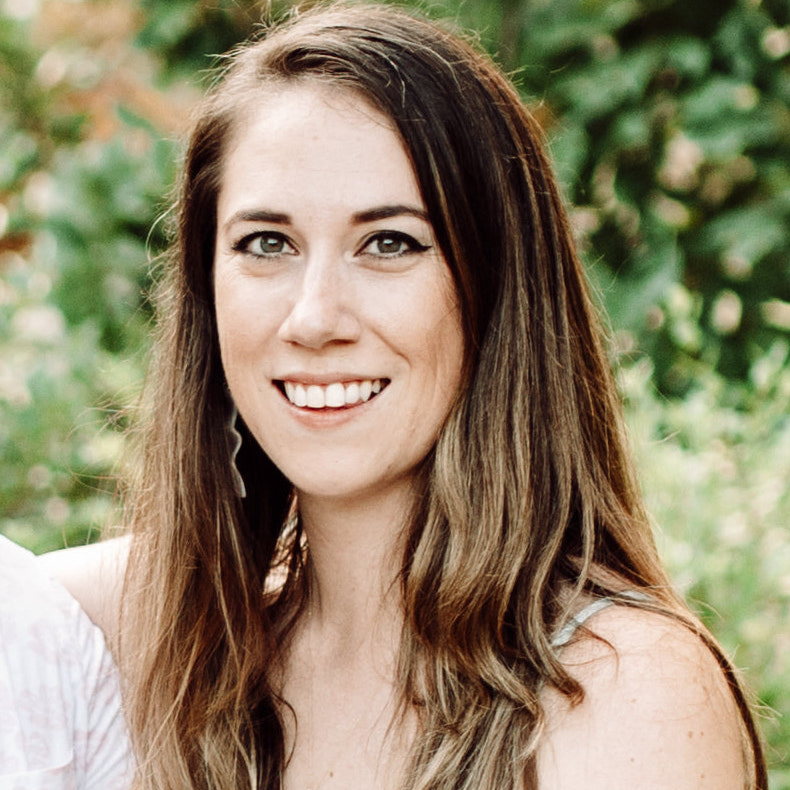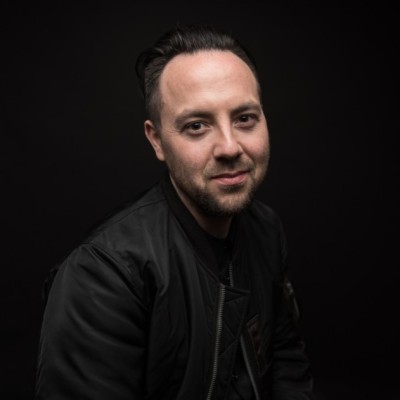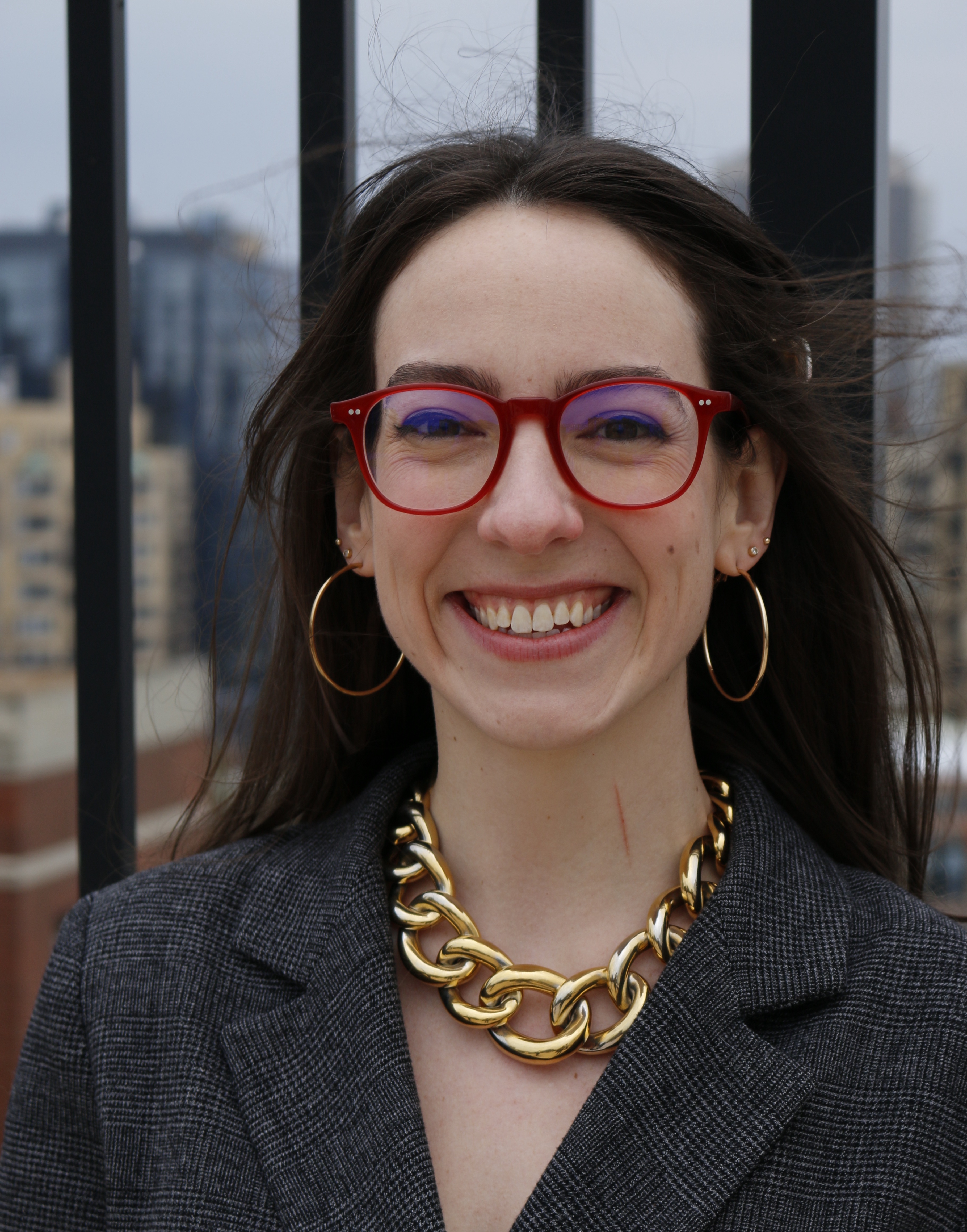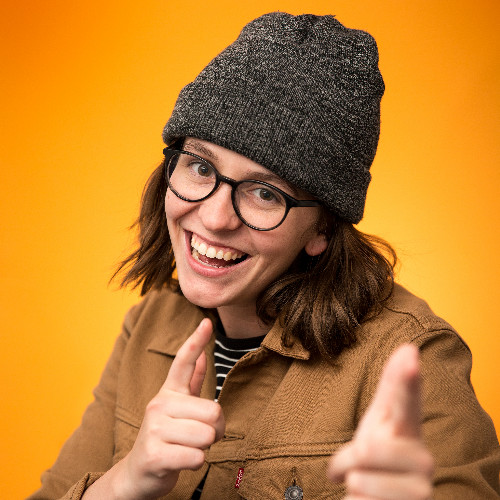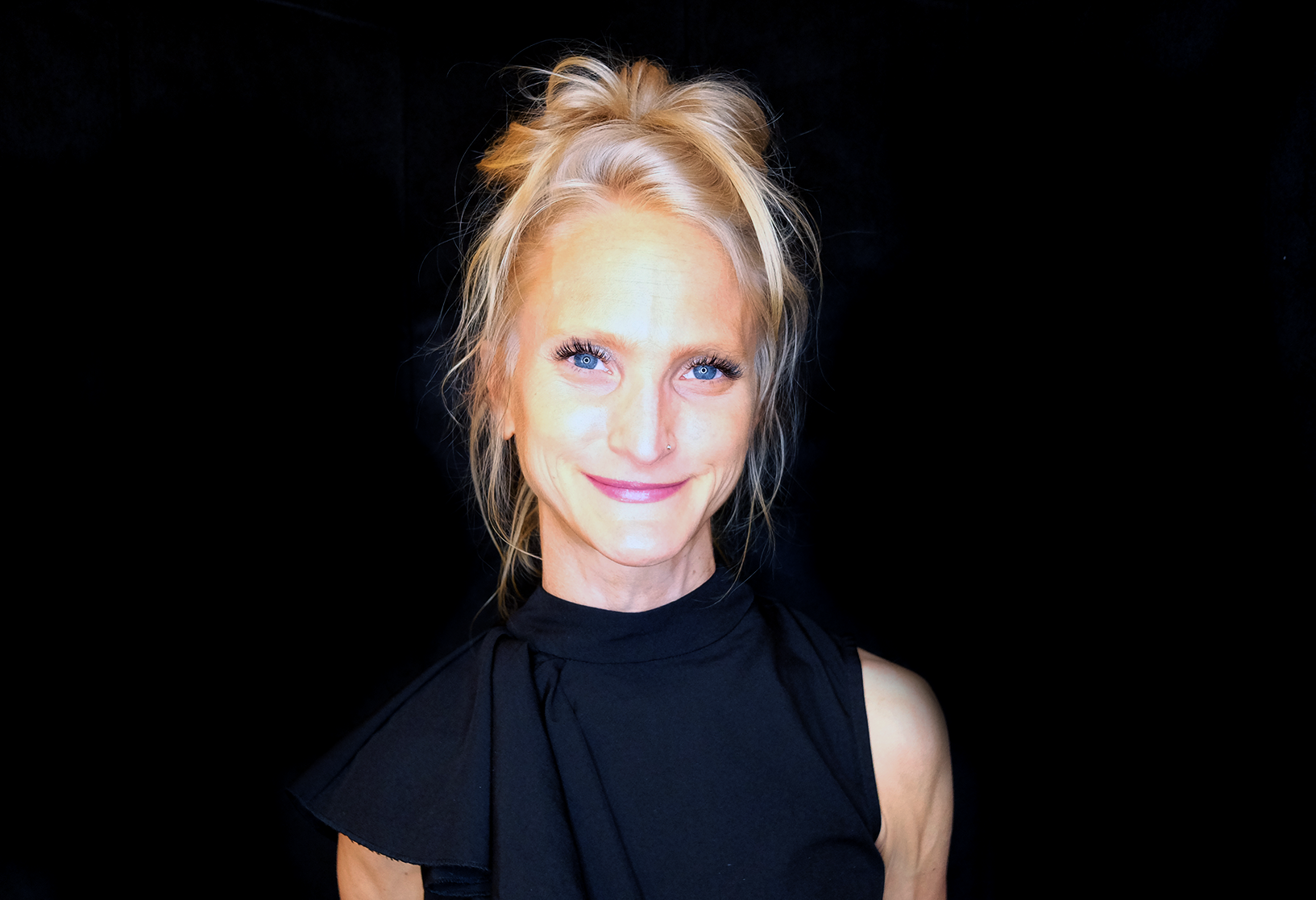Eric Silver and Brandon Grugle first met while they were both working at Sirius XM, and bonded when Eric spotted a piece of podcast merch in Brandon’s office—an Adventure Zone neckerchief.
It wasn’t long before the pair decided to make a D&D podcast of their own (also known as an actual play podcast), and in 2017, they launched Join the Party, which invites people to listen in as Brandon, Eric, and co-hosts Amanda McLoughlin and Julia Schifini played through a D&D campaign, and has since moved on to other tabletop role playing games.
Soon after they launched, Join the Party partnered up with Amanda and Julia’s show, Spirits, to form the basis of the podcast collective Multitude. Multitude now includes eight member shows, and also helps produce podcasts for companies like Defector.
We talked to the duo about why the collective model was important to them, how to encourage better listener interactions, and why it might actually be a good thing that the dumb money is out of podcasting. This interview has been edited and condensed for length and clarity.
 |
What did your tech setup look like when you first started the podcast, and how has it changed over time?
Brandon: We went through a lot of phases for Join the Party. The first one was, we went into our office after hours to use our “studio,” which was just a little meeting room that I had put up with what I could get requisitioned from SiriusXM, which was some RLX foam that did nothing, really. We were using Blue Yeti microphones. And then at some point, I bought some SM57s, which are like this microphone that I’m using now, but the smaller, cheaper version. And we used those for a long time.
Eventually we outfitted my bedroom—I lived in New York at the time. We did it all DIY. We got Amanda's dad to help us build actual professional acoustic stuff.
And then in 2019 we got the office. We lucked out to find a space that had a huge closet that someone else had used for photography equipment. We got Amanda’s dad and one of his contractor friends to build an engineer window into one of the walls; it’s a double pane window. It's a full studio spec. There's a floating floor. There's a floating ceiling. We partnered with a company to fully outfit the studio with VO level acoustic treatment. We have four [SM]7Bs in there that run through an XLR panel on the wall, out through into the actual main office.
So yeah, very much from a DIY office setting to a prosumer-level bedroom in New York City to what we have now, which is a fully functioning studio that we also rent out to clients.
 |
One of the things you have in the studios is camera setups to film video. How do you integrate that video into your existing shows?
Brandon: I worked at Marvel for a long time, running their podcast stuff. And at one point, there was a mandate that all podcasts must also be on video. I was like, “That's not going to work.”
There was a moment where vodcasting was a thing that people were trying to do, and then people realized, you can't make both. There are a handful of people that make it work, but usually they're actual radio professionals. You either have to focus on the video or the podcasting.
Eric: You have to pick the medium you're in. I watch a ton of streamers on YouTube, and when they post clips of their streams, no one changes their stream to make a better YouTube video. They record an intro and then they have a video editor cut it together.
We've recently started recording with Riverside, and with better cameras. But we're like, okay, Brandon still needs to be able to edit our Dungeons and Dragons podcast. We are not streaming it; we are not going no-edits. But what we are going to do is, if we get a hot minute, we're gonna have a video editor—who we hire—edit together clips that we can share on our various social medias.
Which we need to do, because Twitter has exploded, and the only way to do any sort of marketing is to post it to Reels. I don't even know about TikTok. I like TikTok. I think it's interesting. But I also think it's not social media. It's a content channel. TikTok does not want you to leave TikTok. No one's gonna click away from TikTok to your podcast.
So then aside from social media, how did you start building community around the show and getting people to listen?
Brandon: Eric and Amanda were the ones that spearheaded that function, while I took care of the actual tech and making the damn thing.
Eric: It was very helpful that we decided to give people jobs they were good at. All of us were working at these corporate jobs, where the fun stuff got given to people just because they were nice to the manager, and other people got grunt work dumped on them.
We had this idea that it's like, look at your working group like an adventuring party. Let the wizard do magic, let the tank take up the damage. Let the people do what they do.
It was a different time when we were starting. Back in 2016, being someone who taught people how to play Dungeons and Dragons, and being accessible from the jump, made us stand out. And from there, we kind of fostered our community. We had a lot of friends in the audio drama community, so we had a lot of inner intersection with that.
We have been using Patreon from the beginning, and that means we were always at the forefront of their new features, one of which was their relationship with Discord as a Patreon bonus. So having Discord, and creating community through Discord, and through social media, and through afterparties— I think we were the first show to do talk-back episodes that were not behind a paywall.
Brandon: Something that we did at the beginning was, we made two different versions of our first episode. We made one version for if you've played D&D before and you know how the game works. And then we made another version for if you've never played D&D before, where we stop every now and again when we roll a dice or, say, make an ability check. We stop the audio, and Eric or Amanda comes in and says, “an ability check is this, here's how we do it.”
 |
I love that, because it really reinforces the idea that you wanted the podcast to be welcoming. You didn’t just decide that in theory—you made the show in such a way that it actively welcomed newbies.
Eric: I think you can also model the type of listener you want when you're on the microphone. People telling the listeners on the mic not to correct them—you're admitting to the internet that you read the comments, and that you will see them.
If you model by putting people on if they are good contributors to the community—if they make stuff—that’s so much better. Fan artists, fan fiction writers, visual artists. We have a lot of fiber artists in the Join the Party community. We shout them out because it's incredible. I love that you're contributing! The people who we give nicknames to are the people who give the most questions on our afterparties. We’re telling listeners, this is how you can interact with us. That's really important to model.
Community maintenance is a way bigger part of podcasting than a lot of people realize.
Brandon: Yeah. Shout out to our community manager, Julia, who's come on in the past year or so. Before that we had a person named Rue who really started the foundations of our serious community management, so shout out to Rue as well.
We want to make sure that there's value for joining our Patreon or the MultiCrew, but also, we want to make people feel seen. We do a lot of Discord events every month. We do a MultiCrew exclusive hangout session where we sit around and chat with the people hanging out. And then we also do a game night every month. Julia makes a lot of trivia nights, which are very fun.
But the biggest thing that we do for our community is make content regularly and professionally. I think in seven years of Join the Party, we've missed maybe one release date. We make content that's not only dependable, but respectful and professional and welcoming. That’s ultimately the best thing that we can do to help foster the community. and make people feel like they're part of it.
How did you start to think about monetizing Join the Party? You said you were early on Patreon—what else have you pursued?
Eric: Multitude is a collective, and what that really means is that we sell ads for these shows, and we do community events together and we promote each other's shows. But we've never, ever asked people for IP and for cuts of their Patreon. That was always the point of the collective: we stood next to each other, toured together, and Amanda sold ads, but we never touched anything else.
So the Patreon was always key to everyone's show. We were clear about that from the beginning, and we saw that people just want more of you, and they want to give you money because they like what you do.
There was a real inflection point in 2020, where all of our ad sales for three months just disappeared because everyone canceled their marketing spend. But our Patreons grew by like 75 percent to 100 percent, because everyone realized, “Oh, yeah, the businesses I care about, I actually need to keep afloat.” That's why I have 5,000 pieces of restaurant merch now.
Brandon: Something I think that was really brilliant that either you or Amanda did was, we made sure that episode one had a mid-roll. We didn't have any ads to sell, but we still stopped the podcast and said, “Hey, this is where ads will go in the future. And also, we have a Patron already. We would love your support.” So when we did have ads, listeners were used to hearing something there.
 |
Can you talk a little more about Multitude and its philosophy?
Eric: I think more than ever, the things we've been doing from the beginning—conversational podcasts that have a lot of pre-production that make them sound good, and a lot of editing to make them sound good—is the way that all of podcasting is going.
Podcasting's superpower is its deep relationships with audiences, and then leasing that audience to others for ad sales. That is always going to be the backbone of podcasting. At some point after Serial got huge, people thought that the way to get a hit in podcasting was to spend a ton of money on six episodes.
Everyone is saying that the dumb money is gone from the podcasting industry. Well, the dumb idea was thinking you could just make six episodes and then it's gonna get a giant audience. What is gonna happen after episode six? Where does it go? How do you foster community around that?
The stuff we've been doing in Multitude, I think, is bearing out now, that that's how podcasting is sustainable and will continue to be sustainable for years going forward.
Brandon: I'm really happy that—maybe this is the wrong term, but the carpetbaggers, the corporate money hounds that were sniffing around podcasting, are leaving. They couldn't make a quick buck. We actually care about the medium and care about our audiences, and maybe we’ll get to continue to make the content we love and treat the relationship with our listeners with the respect that we think it deserves.
Eric: I would double down on that and say that podcasting is at a weird intersection between media, entertainment, and tech. And if you're talking to someone who wants to disrupt one of those three things, they're going to pull it in that direction and only see it from there. People saw podcasts as backdoor pilots to get their TV shows made, and that never really bore out for them. And people saw it as a tech thing that could be disrupted. Very few people have done it, outside of creating tools that actually help creators.
But podcasting was always something closest to blogging. We saw this from our relationship with Defector and the journalist-owned website boom that's been happening lately. That has been the backbone of podcasting the entire time: making something that a group of people will give you $5 or $10 a month for, and you get enough of them in a room together, plus your ad sales, and then you can go on tour and do some live shows and have a great time.






%20(1).JPG)















